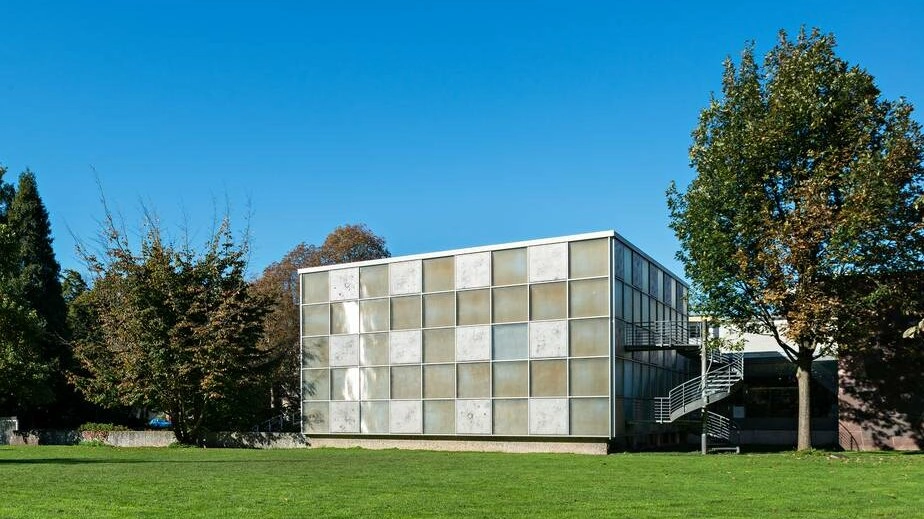Avoiding a mental power surge

John E. Kaye

Josh Krichefski of MediaCom outlines the ways in which leaders should be supporting their teams as we begin life post-lockdown
Walking past pub gardens full of friends and families enjoying a drink and a bite to eat has been a strangely surreal experience of late. There is something so relieving and reassuring about seeing people talking and laughing together, because it’s these little elements of life that have been so sorely missed – the social interaction, the culture, and the escape from work.
As restrictions continue to be lifted, a celebratory atmosphere will no doubt take hold. Many people will adapt quickly, and the year ahead will bring plenty of joy.
On the other hand, many will struggle to readapt – particularly regarding their work life – and business leaders need to create workplaces that allow both groups to flourish.
Businesses need to be conscious of this, and support employees’ needs – listen, consider, and engage with teams as we return to the office. Leaders need to over-communicate and over-engineer ways to make sure their employees are coping, and hopefully thriving. Only then can we call it a full recovery.
Supporting everyone’s return to “normality”
For over a year, people have been methodically told by governments and health experts to stay away from loved ones, to stay at home and do without all of the things that previously defined our everyday. This has led to a cycle of emotions – worry, fear, frustration, anger, relief, happiness, hope, and then back around again when the coronavirus recovery hit a bump in the road.
Now people can, if everything goes to plan, scrap all that. Get outside, go to the cinema with 300 people, squeeze your way to the front of that gig, sit in an office less than a metre from several people. Say yes to offers, make plans and fill the time up. For the time being, forget restful weekends at home, make the most of freedom, as lockdowns in 2021 are still very much a possibility.
If someone struggles to adapt and is nervous about the “new normal”, then that celebratory feeling becomes tinged and sometimes completely overwhelmed by anxiety.
This will hopefully be a short-term issue that will ease with time, but it’s one that leaders must be aware of and act on. Employers can’t keep referring to the “new normal” as if it will slip into place easily. Leaders need to be active, conscious and self-aware enough to know that there is a role to be played in supporting employees and helping them readapt.
There are three core principles that we as a company are applying to help in easing employees back:
- Truly listening and making workplace decisions as a level-agnostic democracy
MediaCom, even before the pandemic, on a global scale was familiar with agile working. However, across the world, we’ve adapted to the pandemic, creating working practices to support employees as a 100% remotely working model was applied. Depending on the needs of each office in each market, support mechanisms to make sure people get what they need, no matter where they are working from, have been put in place. These include check-ins with line managers and if needed mental health allies, the use of Unmind, and MediaCom Unplugged, which encourages people to switch off and avoid work creep.
As employees return to the office, plans and proposals are being researched through staff surveys and communicated through town halls, team huddles and live Q&As. Some people will prefer to work remotely the majority of the time and that’s supported. But for us, taking that and applying a 100% virtual model would have been a mistake as we’ve listened to the views of everyone across the business.
The principal point is that deciding which working model to apply shouldn’t sit at board or management level. It’s vital that when making these decisions, input from all levels, divisions and mindsets is incorporated.
- Being adaptable
The definition of hybrid working will change over time and plans currently in place can’t be set in stone. For example, culture is so important to us and if a hybrid working environment is resulting in employees feeling less engaged or slowing the rate of professional growth due to the lack of time being spent with colleagues in an office environment, the discussion around a hybrid structure will again be opened.
Similarly, across each market, offices have different preferences, but the same flexibility will be offered. Much of that is about the culture in those countries and being flexible and adaptive enough to keep refining our working practices to suit employees.
The key point here is that this is new territory and for the first time in living memory, the opportunity is there to redefine what the workplace is. Making the correct decision the first time is unlikely, therefore the selected approach will need to be adaptable.
- Lean into over-communication
MediaCom has always lived by the principle that leadership is not about broadcast. Positive leadership and a strong culture are created from a two-way communication between leaders and the teams.
This principle is about to be tested. As stated, many employees will struggle as they re-adapt to “normal” life again. But as most businesses are likely to adopt a hybrid working model – and sitting all together in an office might never happen again – it’s going to be difficult spotting those who are struggling and in turn, knowing how to help them.
This means businesses need to over-engineer ways to spot the signs. Be open and honest when communicating and be clear that everyone should feel free to adapt at their own pace. Managers also need to be made aware of this likely phenomenon and leaders need to help ready them to support their people.
These are three strong principles we will be sticking by and no doubt will be adding to. It’s important to remember that while this is an exciting time and simple pleasures can again be enjoyed, not everyone will feel the same.
Leaders have to be careful not to force everyone to switch back on. When people recall the end of World War II, they talk not only of the celebrations, but also the stress and anxiety that came with it. The world is currently going through a life-changing event. Society must learn from the past and put in place routines, processes and support to help people through.
About the author
Josh Krichefski is the Global COO & EMEA CEO of MediaCom.
RECENT ARTICLES
-
 How a book becomes a ‘bestseller (and it’s not what you think)
How a book becomes a ‘bestseller (and it’s not what you think) -
 Fipronil: the silent killer in our waterways
Fipronil: the silent killer in our waterways -
 Addiction remains misunderstood despite clear medical consensus
Addiction remains misunderstood despite clear medical consensus -
 New guide to the NC500 calls time on 'tick-box tourism'
New guide to the NC500 calls time on 'tick-box tourism' -
 Bon anniversaire, Rétromobile: Paris’ great motor show turns 50
Bon anniversaire, Rétromobile: Paris’ great motor show turns 50 -
 Ski hard, rest harder: inside Europe’s new winter-wellness boom
Ski hard, rest harder: inside Europe’s new winter-wellness boom -
 Baden-Baden: Europe’s capital of the art of living
Baden-Baden: Europe’s capital of the art of living -
 Salzburg in 2026: celebrating 270 years of Mozart’s genius
Salzburg in 2026: celebrating 270 years of Mozart’s genius -
 Sea Princess Nika – the ultimate expression of Adriatic elegance on Lošinj
Sea Princess Nika – the ultimate expression of Adriatic elegance on Lošinj -
 Hotel Bellevue, Lošinj, Croatia – refined wellness by the Adriatic
Hotel Bellevue, Lošinj, Croatia – refined wellness by the Adriatic -
 Padstow beyond Stein is a food lover’s dream
Padstow beyond Stein is a food lover’s dream -
 Love really is in the air. How to spot a sky full of heart-stealing stars this Valentine's Day
Love really is in the air. How to spot a sky full of heart-stealing stars this Valentine's Day -
 Cora Cora Maldives – freedom, luxury and a celebration of island life
Cora Cora Maldives – freedom, luxury and a celebration of island life -
 Hotel Ambasador: the place to stay in Split
Hotel Ambasador: the place to stay in Split -
 Maslina Resort, Hvar – mindful luxury in the heart of the Adriatic
Maslina Resort, Hvar – mindful luxury in the heart of the Adriatic -
 The bon hiver guide to Paris
The bon hiver guide to Paris -
 Villa Mirasol – timeless luxury and discreet elegance on the island of Lošinj
Villa Mirasol – timeless luxury and discreet elegance on the island of Lošinj -
 Lošinj’s Captain’s Villa Rouge sets a new standard in private luxury hospitality
Lošinj’s Captain’s Villa Rouge sets a new standard in private luxury hospitality -
 Villa Nai 3.3: A Michelin-recognised haven on Dugi Otok
Villa Nai 3.3: A Michelin-recognised haven on Dugi Otok -
 The European road test: The Jeep Wrangler Rubicon
The European road test: The Jeep Wrangler Rubicon -
 Rattrapante Mondiale – Split-Seconds Worldtimer
Rattrapante Mondiale – Split-Seconds Worldtimer -
 Adaaran Select Meedhupparu & Prestige Water Villas: a Raa Atoll retreat
Adaaran Select Meedhupparu & Prestige Water Villas: a Raa Atoll retreat -
 Heritance Aarah: an island escape crafted for exceptional family and couples’ stays
Heritance Aarah: an island escape crafted for exceptional family and couples’ stays -
 Stanley Johnson in Botswana: a return to the wild heart of Southern Africa
Stanley Johnson in Botswana: a return to the wild heart of Southern Africa -
 Germany’s Jewellery Museum in Pforzheim unveils landmark exhibition on dining culture
Germany’s Jewellery Museum in Pforzheim unveils landmark exhibition on dining culture



























